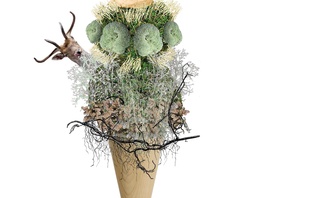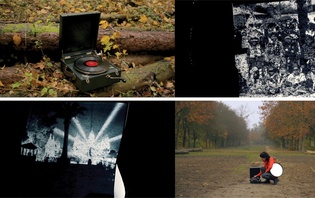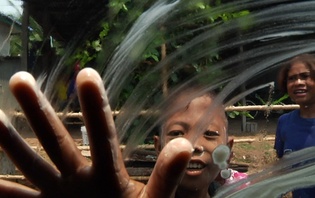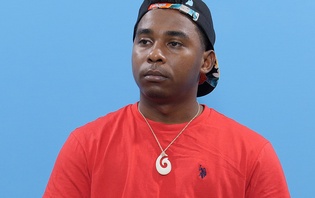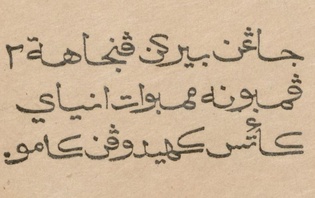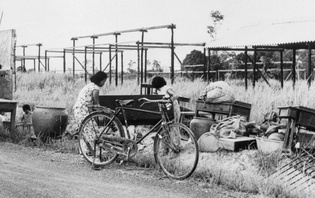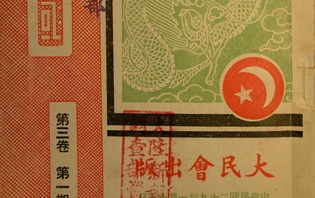Bodies of Occupation: Roundtable – Frankenstein in Baghdad
Roundtable on Ahmed Saadawi’s Frankenstein in Baghdad
Ahmed Saadawi’s novel Frankenstein in Baghdad (Oneworld Publications, 2018 [2013]), a take on Mary Shelley’s famous book, serves as a metaphor for cyclical violence and the precariousness of daily life in Iraq under American occupation. It tells the story of the Whatsitsname, a creature made of the limbs of people who died in terror attacks in Baghdad. Prompted by the death of a friend, junk dealer Hadi collects and sows these body parts together to form a “complete” body that can be given a proper funeral. Unsurprisingly, his attempt goes awry. Possessed by the spirit of one of the dead, the Whatsitsname goes on a killing spree to avenge the innocents whose flesh it is composed of. When the revenge has been carried out, the body part drops off and must be replaced with fresh ones. As the line between victims and perpetrators becomes murkier, the Whatsitsname realises that its mission is just an endless and pointless task. Saadawi’s creature is more than the sum of its parts. It is a monstrous, more-than-human body whose ongoing reconfiguration reflects the ever-changing reality of occupation itself. As such, the Whatsitsname is not only an alternative epistemology or a stratigraphical instrument of exploration, but also the entry point into the becoming of occupation.
Participants
Jonathan Luke Austin is Assistant Professor of International Relations at the University of Copenhagen. He is also Lead Researcher for the Violence Prevention (VIPRE) Initiative at the Graduate Institute of International and Development Studies, Geneva. Austin’s research agenda is currently orientated around four main axes: i. the ontology and microsociology of political violence; ii. the relationships between technology, design theory and world politics; iii. the political status of aesthetics, and; iv. the contemporary state of scientific critique. Alongside these foci, Austin possesses a decade of research and field experience in the Middle East (Syria, Lebanon, Iraq) and regularly consults for NGOs and the media on current events. He has contributed to essays collections, reports, and journals such as Frame: Journal of Literary Studies, Security Dialogue, European Journal of International Relations, and International Political Sociology. He is currently working on two books, Small Worlds of Violence: A Global Grammar for Torture and Unmaking Global Violence (his website).
Dom Davies is a Senior Lecturer in English at City, University of London, where he is also the Programme Director for the BA English. He holds a DPhil and British Academy Postdoctoral Fellowship from the University of Oxford. He is the author of two books, Imperial Infrastructure and Spatial Resistance in Colonial Literature, 1880-1930 (2017) and Urban Comics: Infrastructure and the Global City in Contemporary Graphic Narratives (2019), along with many articles and book chapters broadly in the field of colonial and postcolonial writing, visual culture, and critical infrastructure studies. He is the co-editor of Planned Violence: Post/Colonial Urban Infrastructure, Literature & Culture (2018) and two other edited collections. He is currently writing a trade book about the cultural, regional, and post-imperial politics of the British government’s “levelling-up agenda”, which is due out with Lawrence & Wishart in 2022
Kobi Kabalek is Assistant Professor of Holocaust Studies and Visual Studies in Germanic and Slavic Languages and Literatures and Jewish Studies, Penn State University. He earned his PhD in history from the University of Virginia, with a dissertation on “The Rescue of Jews and the Memory of Nazism in Germany” (2013). In 2014-2017, he was a post-doctoral fellow at the Hebrew University in Jerusalem as part of the ERC project “Experience, Judgment, and Representation of WWII in an Age of Globalization”, and examined conflicting perspectives concerning the war in Mandatory Palestine and their impact on the postwar historiography of Israel and Zionism. His research focuses on historical perceptions, moral sentiments and memory in film, literature, auto/biography, oral narratives, art, etc., in German, Israeli, and global Holocaust history. He currently explores marginalized and extreme phenomena in Holocaust testimonies, historical writing, and popular culture – with special attention to the role of fantasy, imagination, and horror – and their impact on our understanding and representation of the Holocaust.
Rúben Leitão Serém is an Assistant Professor in History at the University of Nottingham since 2019. He specialises on the social history of the Spanish Civil War of 1936-1939, General Franco’s dictatorship (1939-1975), and its traumatic legacy in present-day Spain. A fan of microhistory and memory studies, Rúben has studied the origins, course, and reverberations of this brutal conflict in southern Spain, subsuming it into the wider historiography of nationalism in twentieth-century Iberia. More recently, Rúben has focused his research on the so-called “memory wars” in twenty-first-century Spain, in particular, on their social and cultural ramifications, and their use to feed several – and antipodal – nationalistic waves within the country (Spanish and Catalan nationalism). With around 100,000 victims of the civil war still lying in mass graves all over the country, from roadside ditches to mines and wells, Spain is presently only second to Cambodia in the total number of disappeared citizens. Deep and bitter divisions persist on how to deal with these bodies, for their presence and visibility has the power to erode the political consensus established during Spain’s transition to democracy during the 1970s. At a social level, the undignified status of the dead has only served to augment the trauma experienced by survivors and their descendants. In this respect, Franco’s project to instil fear and divide the nation lives on long after the death of its architect, finding nourishment on its executed victims. Rúben is the author of Conspiracy, Coup d’état and Civil war in Seville, 1936-1939: History and Myth in Francoist Spain (Eastbourne: Sussex Academic Press, 2017). More recently, he has published “Muerte y miseria en la «Ciudad de Dios»: El virreinato de Queipo de Llano en Sevilla” in Del Arco Blanco, Miguel Ángel (ed), Los «años del hambre»: Historia y memoria de la posguerra franquista (Madrid: Marcial Pons, 2020). Rúben is currently working on the involvement of the ultranationalist Portuguese Estado Novo dictatorship in the Spanish Civil War.
Annie Webster studied English and Related Literature at the University of York and Arabic at the University of Edinburgh before completing her Wolfson-funded PhD on post-2003 Iraqi fiction at SOAS in 2020 with a thesis titled Stories of Creative Destruction in post-2003 Iraqi Fiction. She has since been teaching modern Arabic literature at King’s College London and the University of Cambridge. She has published a number of articles on contemporary Iraqi literature, including “Ahmed Saadawi’s Frankenstein in Baghdad: A Tale of Biomedical Salvation?” in Literature and Medicine (2018), “Indexing War: The Craft of the Catalogue in Sinan Antoon’s The Book of Collateral Damage” in Wasafiri (2021), and a chapter on literary depictions of occupied Baghdad forthcoming in The Routledge Companion of Literary Urban Studies. She has also contributed pieces to the TORCH blog, the MULOSIGE blog, and Arablit.org. More recently, she has developed an interest in contemporary Iraqi art which she has written about for ArtsCabinet.org, and is working with the artist Hanaa Malallah on the forthcoming exhibition “Co-Existent Ruins” (SOAS, 2022). She is currently preparing a monograph from her thesis which explores how contemporary Iraqi literature commemorates the human and environmental fallout of the 2003 Iraq War. Investigating how these texts have been incorporated into the international literary marketplace and framed by neoliberal paradigms of empathy, she draws attention to the various modes of linguistic, cultural and material translation that these texts undergo. She also highlights intertextual links with classical Arabic literature that have thus far been overlooked. More broadly her research explores political and literary ecologies of war.
